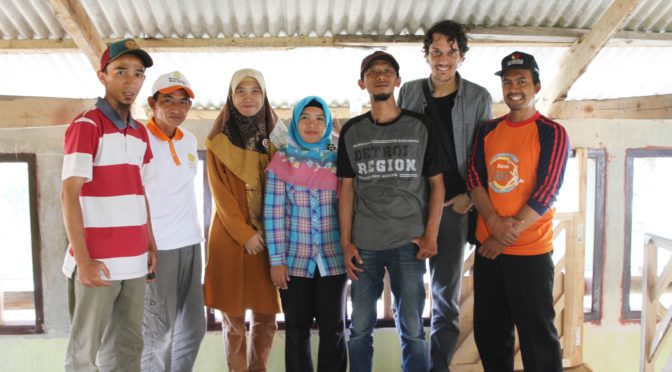As part of the coffee project, we provided a 3-day training on the production of organic fertilisers to coffee farmers from the villages Cipaganti and Pangauban. The attendance was very high (around 70 un-organic farmers joined the training) and the farmers were enthusiastic about it!
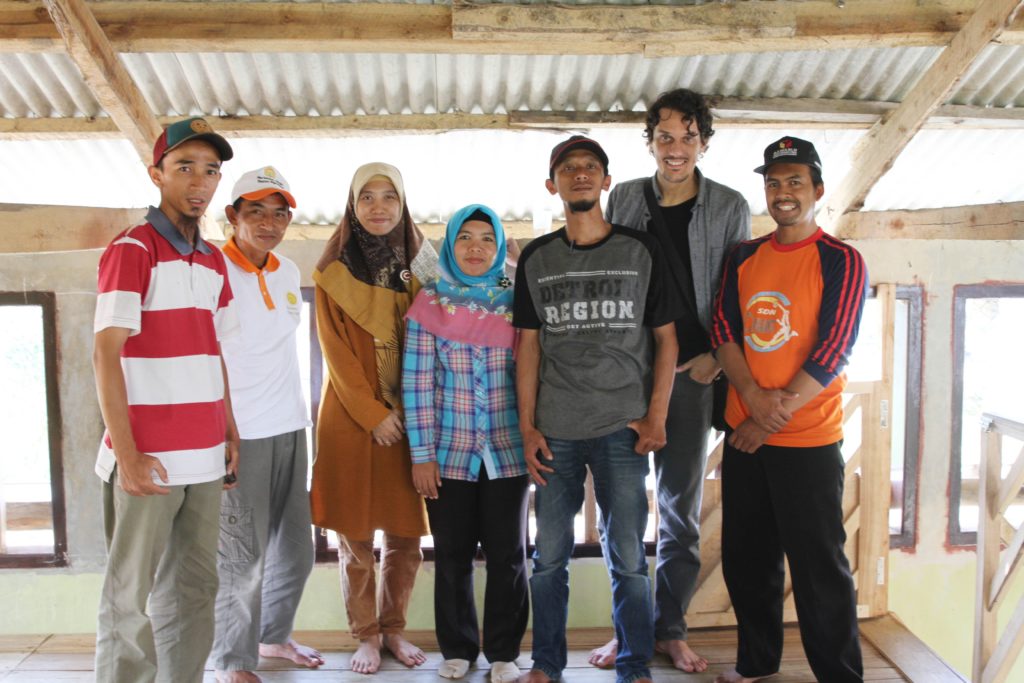
Training day 1
We invited researchers from BALITTRI, a governmental organisation from Bogor, to give training to local farmers. Two researchers and one technician helped during it. On Friday 19 April they provided a theoretical lesson to coffee farmers on the benefits on the production and use of organic fertilisers for coffee plantations. They suggested materials to use on the production of fertilisers, indicating the macronutrients contained with relative benefits. Farmers asked many questions and were very interested in this lesson. The information provided during this lesson was then put in practice in the practical activities.
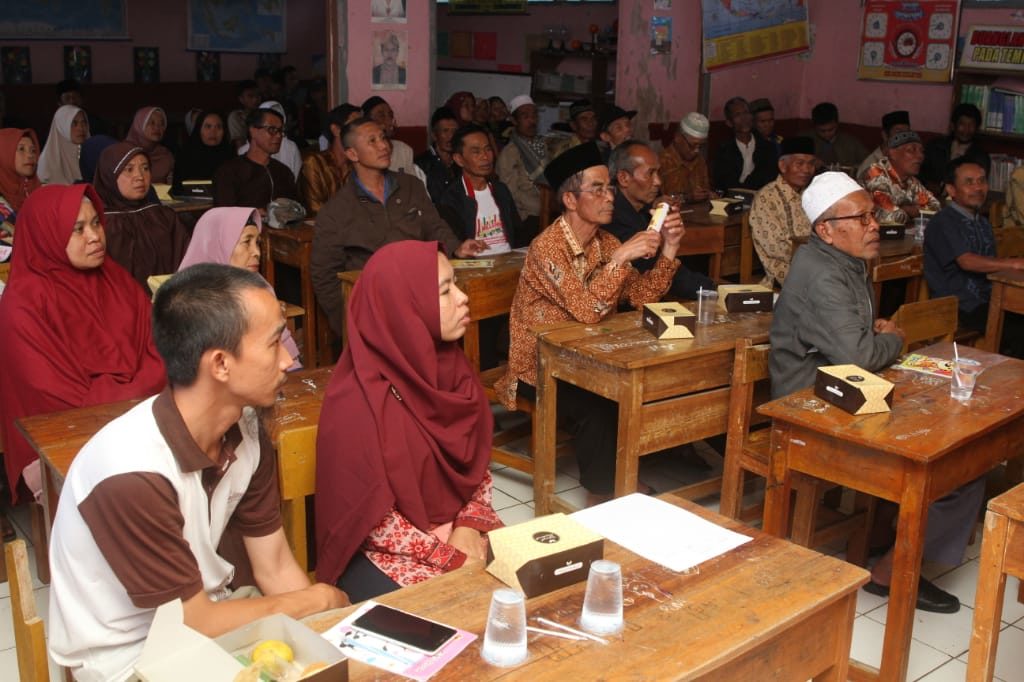
Training day 2
Since farmers belong to two groups, we decided to do two separate practical activities, one for each group. On the second day of the training, we invited un-organic farmers of Pangauban to do the practical activity. The farmer community in Pangauban already had some previous experience with the production of organic fertilisers, and 28 members of this community are already in an advanced process to become organic. In this community, we focused on un-organic farmers for this training and invited a few organic farmers as representative. This training was relatively quick since this community has already equipment for preparing organic fertiliser.
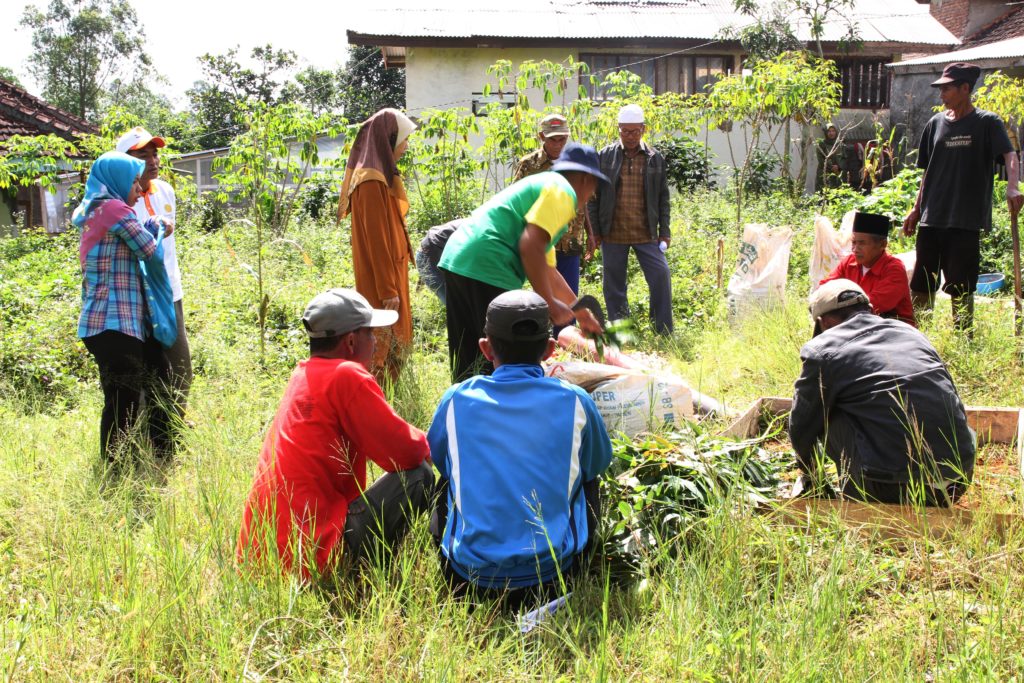
Training day 3
On the last day, we held the training in Cipaganti and around 50 farmers attended the training. In Cipaganti, all farmers are using un-organic fertilisers and it is thus fundamental to change the mindset of this farmer community. The attendance and participation of this group were very high, and this is promising for the future. This group took a bit longer than the community in Pangauban to do the training since they do not have equipment for cutting and mixing leaves, and they needed to cut and mix manually. But they were enthusiastic of this training and they are now willing to start using organic fertilisers since they recognised the benefits now that they have been trained on how to make them properly.
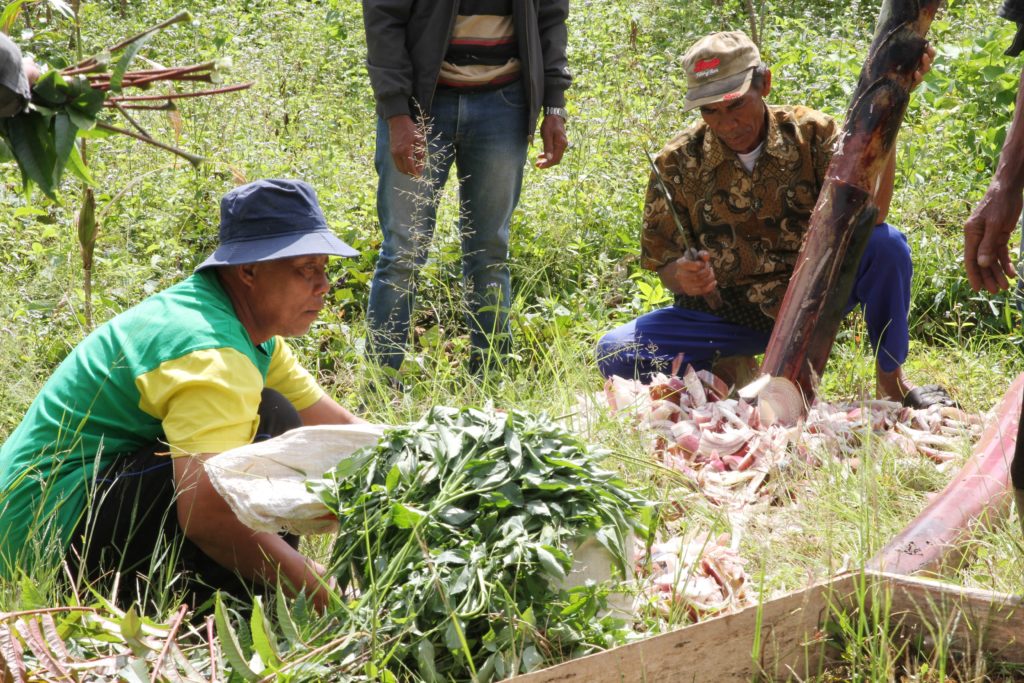
Next steps
It will be important to help farmers in the first stages since converting to organic fertilisers may decrease productivity at the beginning. This is because usually more fertiliser is needed, and often farmers do not know how to make it properly. We will then help them by helping having a supply chain in each community and by providing some materials. The trainers suggested mixing an organic compound that includes natural macronutrients and fito-hormones with the organic fertiliser to keep the productivity high. We will cooperate with the farmers to keep their productivity high and to increase biodiversity via promoting organic production at the same time!
MARCO CAMPERA

